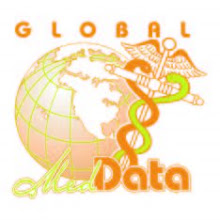Ask any physician to list their top concerns regarding EHR adoption, and chances are that you will find the term, “costs”, in the number one spot. That is not surprising, considering the fact that the average full-fledged EHR comes with a $50,000 price tag, not to mention, ongoing maintenance costs. The lofty expense and financial risk related to conventional EHR is quite a bitter pill to swallow for most doctors. As a result, many practitioners are searching for alternative HIT solutions.
An EHR with slightly fewer functions may be the best approach to going paperless…or at least a wise first step. Along with the advantage of lower-costs, a lightweight EHR is often Web-based, easily integrated and interoperable. When compared to the expense and complexities of fully-functional EHR, the benefits to a lightweight model are appealing.
Ken Beasley, CEO of a Tennessee practice, gave his take on conventional vs. lightweight EHR in a recent article released through Health Data Management:
[…] ”Where I’ve seen them implemented they’ve really slowed the doctors down,” Beasley says. He argues that most of these systems are too cumbersome to use, requiring doctors to point-and-click on clunky templates or type in their notes. A far more efficient method, he contends, is to continue the age-old practice of doctors dictating notes for transcription. Many records systems are so complex, he argues, that practices frequently use only a small fraction of their costly functions.”1
Global MedData, a technology and business solution provider based in the U.S., and in the U.K., has been equipping hospitals and clinics with affordable and scalable electronic transcription systems since 1990. Dr. Raj Patel, President and CEO of Global MedData shares the belief that automation can be achieved more efficiently with the right solutions.
“We stand behind doctors and provide the applications they want, rather than boggling them down with suites that they won’t use,” he states.
While technology proves to be a powerful tool for improving the overall performance of an organization, clinics should do their homework before jumping into a complex set-up. Statistics show 30% of practices that adopt an EHR end up de-installing it later. The key to avoiding such a costly mistake is to assess your needs and plan ahead.
“The success of EHR implementation is ultimately determined by how well it fits into existing workflow systems,” Dr. Patel contends.
Global MedData has designed their product with those factors in mind. The goal is to help physicians streamline operations and enable them to focus more on practicing medicine, and in turn, improve the quality of patient care. The company provides affordable technology and effective business solutions based on open standards, interoperability, seamless integration, and without upfront investment.
Global MedData is a provider of digital transcription services and modular EHR to physician practices, clinics and hospitals in the U.S. and to the National Health Service facilities in the U. K. For more information email us at: sales@globalmeddata.net
References:
http://www.ama-assn.org/amednews/2009/02/02/bisa0202.html
1http://www.healthdatamanagement.com/news/EHR-28060-1html?typ=pr...
Subscribe to:
Post Comments (Atom)


No comments:
Post a Comment